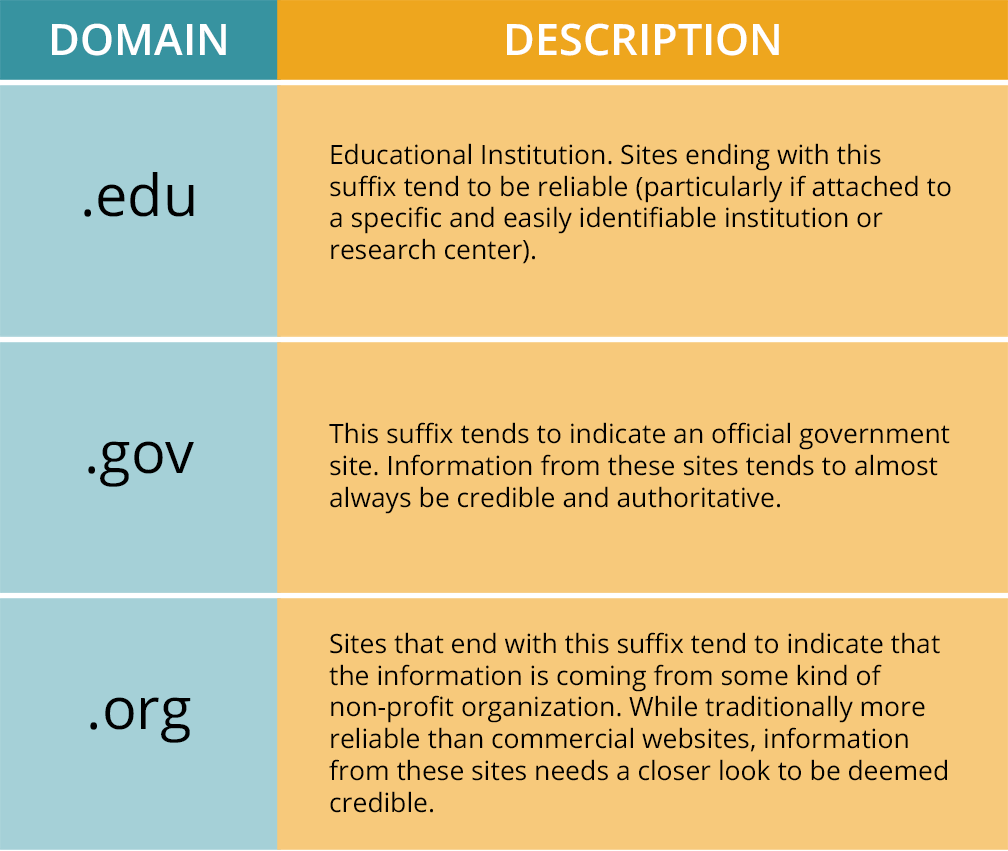Evaluating Sources
Is the source authoritative?
The third question you should be asking as you look at possible sources is whether or not those sources could be called authoritative and therefore be accepted by your intended audience. To help you determine this, here are just a few questions for you to apply to your search:
Who is the author/source/publisher/sponsor?
While identifying the author or publisher of a source might seem like common sense (especially when it comes to print source material), you’d be surprised how many digital sources do not provide readers with this information. This is not only a problem from a citation standpoint as you seek to avoid plagiarism, it is also an easy way to spot an unreliable source. If you cannot easily identify the author, source, publisher, or sponsor of the source you are looking at, you likely shouldn’t use it in your own writing.
Is the author qualified to write on this topic?
Closely related to the question above is the question of author qualification. Knowing who wrote a source is only half the process. Equally important is the author’s background and expertise in your area of interest.
For example, imagine for a moment that you were asked to write an Informative Essay based on the following prompt question:
- What are three steps people can take to invest in their future?
Which author would you feel more comfortable quoting in your essay based on your intended audience’s expectations-- a little-known author of a short Wikipedia article, or a financial expert with a degree in Accounting and 20+ years of industry experience?
While the answer to this question may seem like an obvious one, the question itself is far too often ignored by writers, making for much less effective essays.
Does the URL reveal anything about the author or source?
Evaluating the authority of source material has become more difficult in the digital age. The internet has provided nearly everyone with unlimited access to unfiltered sources. This means that most of what you read on the internet cannot be seen as accurate. There are some things you can do to determine if an internet source is accurate though.
One thing you can do is look at the domain suffix (the end letters) of the website address you are looking at. While some domain suffixes like .com and .net don’t have strict rules for the type of information being provided to readers (as they are commercial suffixes intended to reach a very broad audience), according to the University System of Georgia, there are other domain suffixes that do have very distinct rules and intentions. Domain suffixes like these tend to be more reliable and authoritative, so they are always a better place to start.Take a look at the chart below to see what some of these suffixes are:

Domain Suffixes Accessible Version
Ponder and Record
- What qualifications do you feel your source authors should have in order to be considered “authoritative” on your topic?
- What domain suffix would likely give you the most reliable and authoritative information?